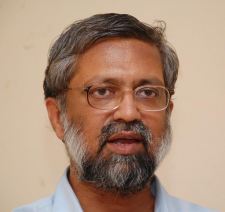
New Delhi, October 15: “The real test to the adherence of human rights principles by any state happens at the time of terror or emergency, not during times of normalcy,” said PUCL national general secretary V. Suresh, while delivering the second Professor Iqbal Ansari Memorial Lecture on ‘Sedition, Anti-Terror Laws and Democracy’ at the Indian Law Institute here on Saturday.
Human rights is no luxury or privilege but a fundamental right of every Indian citizen, Dr. Suresh said, adding: “The anti-terror laws are being widely used against various sections of marginalised communities and religious minorities, especially Muslims. Now there is enough evidence to show that the police are working with the malicious intent to frame people of a particular community.”
Arguing that the amended Unlawful Activities Prevention Act, 1967 is more dangerous than the scrapped Prevention of Terrorism Act, he said safeguards against the possible misuse, which used to be there in laws like TADA and POTA, were quietly dropped in the amended UAPA.
“While POTA could not be registered by a police officer below the rank of SP, whose approval was required, UAPA did not have this clause. In the same manner, POTA required sanction at the time of filing of charge sheet, which was also dropped in UAPA,” argued Dr. Suresh.
Citing international standards, he said there was an urgent need to ensure the accountability of police officers. He appealed to the human rights community and activists to come together and fight draconian laws such as the one on sedition, the UAPA and the AFSPA, in order to restore “real democracy.”
He said it was high time “cases are filed against police officers who are found guilty of implicating innocents.”
Earlier, talking about sedition laws, advocate Mayur Suresh, a practising criminal lawyer and a researcher in the University of London asked, “If sedition [laws are invoked] for the suppression of political dissent, then why are Muslim youths being picked up randomly and booked for years together?” He said: “The test of sedition that the government seeks is, ‘have you expressed enough love for the nation? If not, then you are seditious.’ But the question is, how will love for [the] nation be judged?”





Comments
Add new comment